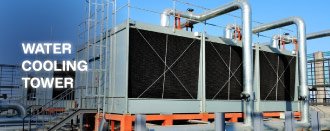The World Standard Organization (WSO) is a global network of accreditation organizations and other entities involved in conformity evaluation across areas such as management systems, products, proces es, services, personnel, validation and verification, and similar conformity assessment programs.
Our main role is to establish a unified global conformity assessment program that minimizes risks for companies and their clients by ensuring that accredited certificates and validation and verification declarations are trustworthy and dependable.

ISO 9001:2018 : Quality Management System
ISO 9001 is an internationally recognized set of requirements for creating the rules, policies, processes, and procedures to provide products and services that meet customer needs, and improve customer satisfaction. The Quality Management System standard is maintained by the International Organization for Standardization, and is agreed upon by a majority of member countries in this organization so that it can be recognized internationally and is accepted as the gold standard for the processes to be used worldwide for the QMS.

ISO 14001:2015 : Environmental Management System
ISO 14001 is the internationally recognized standard for environmental management systems (EMS). It provides a framework for organizations to design and implement an EMS, and continually improve their environmental performance. By adhering to this standard, organizations can ensure they are taking proactive measures to minimize their environmental footprint, comply with relevant legal requirements, and achieve their environmental objectives. The framework encompasses various aspects, from resource usage and waste management to monitoring environmental performance and involving stakeholders in environmental commitments.

ISO 45001:2018 : Occupational health and safety management systems
ISO 45001 is an international standard that specifies requirements for an occupational health and safety (OH&S) management system. It provides a framework for organizations to manage risks and improve OH&S performance. The standard establishes criteria for an OH&S policy, objectives, planning, implementation, operation, auditing and review. Key elements include leadership commitment, worker participation, hazard identification and risk assessment, legal and regulatory compliance, emergency planning, incident investigation and continual improvement.

ISO 50001 : 2018 Energy Management Systems
ISO 50001 is an internationally recognized set of standards to supports organizations in all sectors to use energy more efficiently through the development of an energy Management System. The standard specifies the requirements for establishing, implementing, maintaining, and improving an energy management system, whose purpose is to enable an organization to follow a systematic approach in achieving continual improvement of energy performance, including energy efficiency, energy security, energy use, and consumption.[ The standard aims to help organizations continually reduce their energy use, and therefore their energy costs and their greenhouse gas emissions.

ISO 55001:2014 : Asset Management System
ISO 55001 is an asset management system standard, the main objective of which is to help organizations manage the lifecycle of assets more effectively. By implementing ISO 55001 organizations will have better control over daily activities, achieve higher return with their assets, and reduce the total cost of risk. This standard can be applied to all organizational structures of companies, and to all types of assets. The concrete outcomes consist of a growth in effectiveness accompanied by a dramatic drop in unit cost. This framework also supports continual improvement of performance and offers improvements for an organization of any industry, type or size.

ISO 41001:2018 : Facility Management System
ISO 41001 A facility management system is designed to help organizations integrate people, locations, processes and procedures in order to drive the improvement of stakeholders quality of life whilst keeping in mind company objectives of achieving continual business improvement. This standard is designed to help organizations implement the highest standards of facilities management to reduce costs and boost efficiency.

ISO 20000:2018 : IT Service Management System
ISO 20000:2018 provides a set of best practices for organizations to establish, implement, maintain, and continually improve their IT service management systems. It helps organizations to deliver IT services effectively and efficiently, meeting the needs of their customers and stakeholders. Ensuring that IT services meet agreed-upon performance levels. Responding to and resolving IT service disruptions efficiently.

ISO 21001:2018 : Education Organizations Management System
ISO 21001 is a globally recognized standard specifically designed for educational organizations. It provides a comprehensive framework for managing and improving the quality of educational services. By implementing ISO 21001, educational institutions can demonstrate their commitment to providing a high-quality learning experience for their students. helps to ensure that educational programs are aligned with student needs and that resources are effectively utilized to achieve desired learning outcomes.

ISO 22000:2018 : Quality Management System
ISO 22000 is an internationally recognized standard that provides a framework for food businesses to establish, implement, maintain, and continually improve a food safety management system (FSMS). It is designed to ensure that food products are safe for consumption and meet the requirements of consumers and regulatory authorities. Food businesses can significantly reduce the risk of foodborne illnesses and ensure the safety of their products. Certification demonstrates a commitment to food safety, which can boost consumer confidence in the brand and increase market share.

ISO 22716:2007 : Good Manufacturing Practices (GMP)
ISO 22716 is a globally recognized standard that provides guidelines for good manufacturing practices (GMP) in the cosmetics industry. It is designed to ensure that cosmetics products are manufactured, stored, and distributed in a safe and hygienic manner, meeting the requirements of consumers and regulatory authorities. Cosmetics manufacturers can significantly reduce the risk of product contamination and ensure the safety of their products. Certification demonstrates a commitment to quality and safety, which can boost consumer confidence in the brand and increase market share.

ISO 20121:2024 - Event Sustainability Management System
ISO 20121 is a globally recognized standard that provides a framework for organizations to establish, implement, maintain, and continually improve an event sustainability management system (ESMS). It is designed to help organizations plan, organize, and conduct events in a sustainable manner, minimizing their environmental impact and promoting social and economic benefits. significantly reduce the environmental impact of their events, promoting sustainability and demonstrating their commitment to corporate social responsibility. Certification can enhance an organization's reputation, attracting more sponsors, exhibitors, and attendees.

ISO 16345:2014 – Water Cooling Tower
ISO 16345 is an international standard that provides specific requirements for the design, manufacture, installation, and operation of water cooling towers. It aims to ensure that these critical components in industrial and commercial processes are safe, reliable, and efficient. The standard covers various design considerations, including structural integrity, corrosion resistance, noise levels, and energy efficiency. It provides guidelines for proper installation, testing, and commissioning of cooling towers to ensure they operate as intended.

Healthy Building Certification
Healthy building standards are a set of guidelines and best practices that aim to create indoor environments that support the health and well-being of building occupants. These standards address various aspects of building design, construction, and operation to minimize potential health hazards and promote a comfortable and productive environment. Key Areas addressed by Healthy Building Standards: Indoor Air Quality (IAQ), Water Quality, Thermal Comforts, Materials, Ergonomics, Mental Well being. Certification can improve occupant health’s. Increase productivity.
Why to become Auditor
Becoming a lead auditor for standards,
- Career Trajectory: Lead auditor certification significantly boosts your employability and opens doors to higher-paying, leadership-oriented roles in auditing, management, and consultancy, both internally and externally.
- Professional Expertise and Leadership: You gain in-depth knowledge of standards and master crucial leadership skills in planning, managing audit teams, and effectively communicating findings, making you a more valuable asset.
- Increased Earning Potential: Lead auditors are highly sought after for their advanced skills and responsibilities, commanding a higher salary compared to standard auditors or those without this specialized certification.
- Global Recognition and Credibility: Lead auditor certifications are often recognized internationally, enhancing your professional standing and providing opportunities across diverse industries and geographical locations.
- Contribution and Impact: You play a vital role in ensuring organizations adhere to best practices, driving improvement in quality, safety, and sustainability, leading to a greater sense of professional purpose and achievement.
Why to make your Company ISO Certified
- Enhanced Credibility and Trust: ISO certification, especially from a reputable third-party, acts as a powerful endorsement of your company’s commitment to quality, environmental responsibility, safety, or other specific standards. This builds trust with customers, partners, and stakeholders, making you a more reliable and preferred choice in the market, particularly in competitive environments and when bidding for contracts.
- Improved Efficiency and Reduced Costs: Implementing ISO standards often requires a thorough review and optimization of your processes. This leads to greater efficiency, reduced waste (material, time, and resources), fewer errors, and ultimately lower operational costs. Streamlined processes and a focus on continuous improvement contribute directly to a healthier bottom line.
- Increased Customer Satisfaction and Loyalty: ISO standards emphasize customer focus and aim to consistently meet or exceed customer requirements. By implementing a robust management system, you improve product and service quality, leading to higher customer satisfaction, increased loyalty, and positive word-of-mouth referrals.
- Better Access to New Markets and Opportunities: Many industries and government agencies worldwide require or strongly prefer ISO certification as a prerequisite for doing business. Achieving certification can unlock access to new markets, both domestically and internationally, and provide a competitive edge when pursuing tenders and contracts.
- Stronger Risk Management and Compliance: ISO standards provide a framework for identifying, assessing, and controlling risks relevant to your business operations. This proactive approach helps prevent issues, ensures better compliance with legal and regulatory requirements, and enhances the overall resilience and sustainability of your organization.
